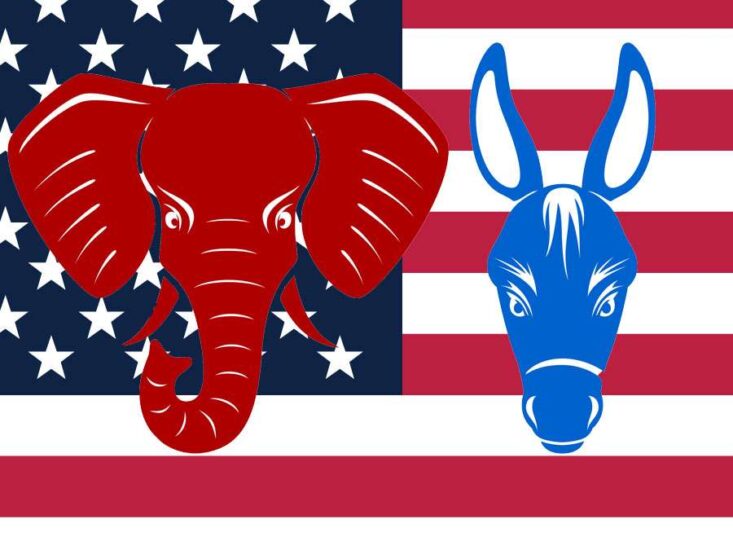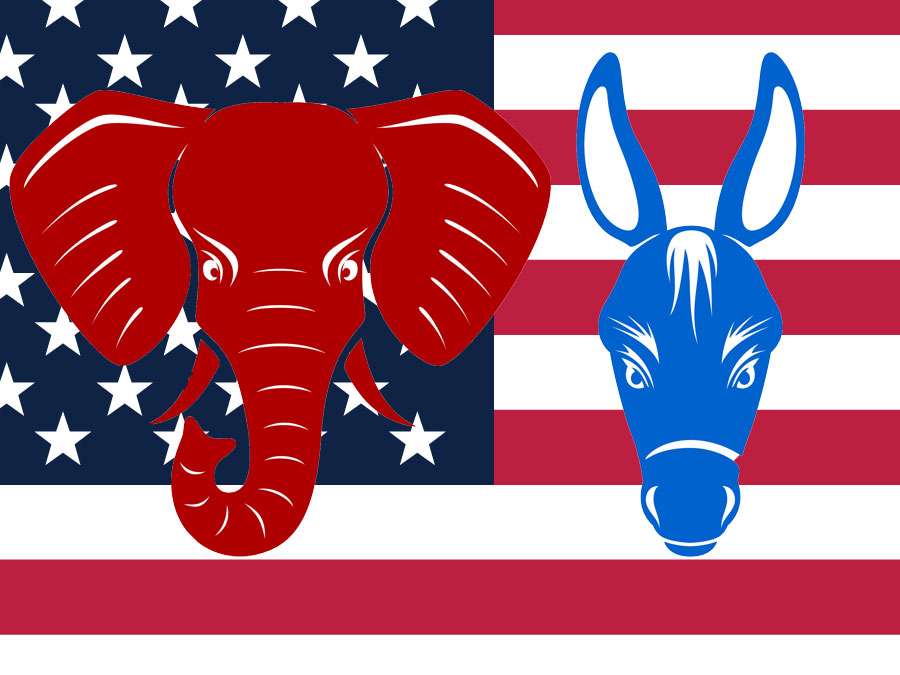BY: Mohammad Ghaderi

PEJOURNAL – Examination of the American people’s policy priorities for 2021 reveals serious gaps between Republicans and Democrats in Congress on domestic and foreign policy and economic issues. With the United States facing two budget deficit crises and the global Covid-19 epidemic, the majority of Americans want the Biden administration and Congress to prioritize strengthening the economy and controlling the outbreak of coronavirus in 2021.
But the wide-ranging gaps between people and policymakers that go beyond partisanship and politics have made issues of racial discrimination, countering COVID-19, compensating for the budget deficit and creating jobs still not a priority in the Biden administration and Congress.
The Biden administration has not yet been able to return to normalcy after the Trump virus and come up with a plan to improve US foreign policy and world trade, as well as to improve the social and economic performance of the United States, given its foreign policy involvement with China and Russia. China and Russia, on the other hand, have made their political, economic, and even security goals and programs a top priority or an important priority in the face of US threatening and retaliatory behavior.
In the aftermath of the controversial 2020 presidential election and the deadly attack on Congress on Capitol Hill, parties have become increasingly divided over how to address the issues facing the United States; And these differences have left no opportunity for “improving the political and economic system” to be a top priority for Congress and the government; Thus, partisan differences over many policy goals to improve structures are becoming wider and deeper.
There is also considerable disagreement over the importance of other policy goals, particularly NATO goals, climate change, how to deal with China and Russia, how to contain a nuclear Iran, and more recently the mediation debate between Palestine and Israel.
While Democrats and Republicans, with differing political goals, are skeptical about prioritizing domestic and foreign policy, the people of the United States have prioritized improving their employment and returning health to the American Covid affected nation.
Given the circumstances, it can be argued that a split in tastes between Republican and Democratic members of Congress on addressing priorities among the top five policy objectives has effectively suspended the Biden administration and Congress, leading to a split within the party. The problems of the poor have been addressed, how to deal with the effects of the coronavirus, reduce health care costs and improve education.
Among members of both parties in Congress in 2021, less attention has been paid to the budget deficit than under Barack Obama and Donald Trump; and its negative effects will show as the first catastrophe of this split of tastes and parties within the years 2022 and 2023.
While the social situation suggests that economic and livelihood concerns are once again at the forefront of public opinion in the United States, the mere withdrawal of US troops from Afghanistan, which costs more than $ 50 billion a year, cannot be a significant contribution to strengthening or securing the economy. Funds to deal with the spread of the coronavirus. In other words, the general situation of the American people, even by the end of Biden’s presidency, could not be better than 2021, given the borrowing of more than two thousand billion dollars from the Federal Reserve. Even maintaining the status quo for the coming years seems unlikely.
Currently, the biggest gap between society and Congress and the US government is in setting strategic national defense priorities. While people value territorial defense against terrorists inside the United States, both Republicans and Democrats are more inclined to focus more on strategic defense policy issues outside of the United States.
The result of this disagreement has not led Congress to prioritize defense budget-related priorities over specific public priorities in the areas of social security, the economy, employment status, and crime reduction; Thus, it is clear that in the coming years, 2022 and 2023, the United States will spend more than lost public welfare outside the mainland to maintain its strategic depth.
Significant differences in the views of military and security policy priorities indicate that political groups and military-industry owners have defined their interests and goals in US major-policies more effectively than those of other political groups. It should be noted, however, that policymaking in the United States is a complex and multifaceted process that involves the interaction of many political groups, businesses, and individuals who act in a particular way to influence policymakers and compete with each other in a variety of political approaches to advance their interests.
These methods include the lobbying of large arms companies, pharmaceuticals, technology and influential people who openly dominate and focus on persuading supporters or opponents, as well as mobilizing allies on an issue, that is, gaining more interest in any situation.
The macro-policies adopted by these groups not only do not cross the path of public opinion, but these policies are injected into public opinion during the media process, and, finally, their feedback and approval are evaluated by public opinion and used in the long run in political processes. Of course, most of the time the consequences of political approaches involve compromise between the decision-making stakeholders.
Influential political factors may tend to examine or neutralize each other in the absence of a crisis and even during a crisis. Therefore, they may act more slowly in the development and implementation of new policies and pave the way for corrective rather than fundamental changes in public policy.
Politicians may, for years, justify public opinion over the wars in Vietnam, Afghanistan, and Iraq, or the economic confrontation with China and Russia, and suddenly act in the exact opposite direction, recognizing the end of the war as expedient. At such times, public opinion and priorities do not have much impact on public policy over time and as they engage with and change macro-policies. Especially those related to the start or end of the war, sustainable employment, growing public concern for the environment, volatile energy prices, and global climate change.
The congressional hearing about that was exactly where the policy came from. It is less influenced by public opinion. As a result, a wide range of influential factors that tend to push domestic and foreign policy in different directions have not considered rapid changes in public policy in recent years and even for years to come.
For example, concerns within American society about discrimination against whites, Hispanics, blacks, and blacks, as well as the importance of other issues, especially poverty alleviation, job creation, continuing college education for the poor, and criminal justice, are not the concern of members of Congress; and they do not consider these concerns to be a top priority. Or rather, blacks or Hispanics, as a top priority, have no place in macro-policies, even for years to come.
It can be said that in the coming years, the citizens of the colored classes of the United States, regardless of party affiliation or social orientation, will not play a more prominent role in the fundamental issues of the United States than in previous years; And they cannot have a major impact on social, cultural, economic and political affairs and be a determining factor based on the type of citizenship they see. This trend will gradually lead to the separation of the citizens of the colored and low-income classes of the United States from the United States, and in the future will divide the United States into a rich and poor region.
